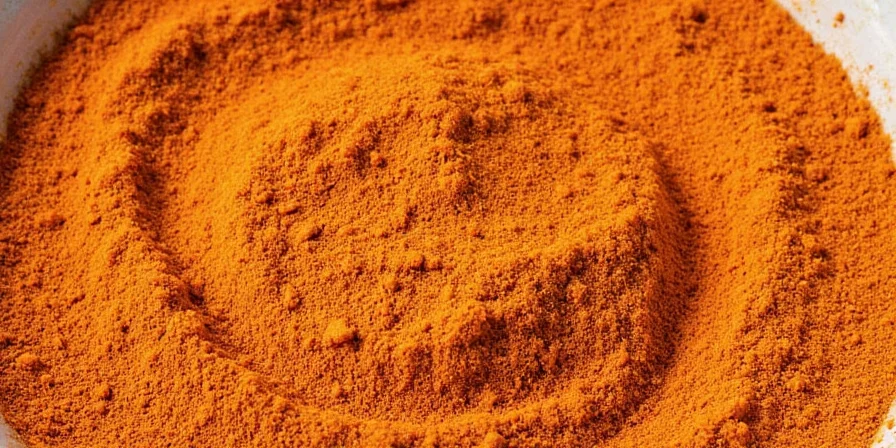Spice Up Your Beef Stew: 10 Flavors That’ll Make You Lick the Pot (Seriously!)
Beef stew is a classic comfort dish — hearty, warming, and perfect for chilly nights. But let's be real... not all stews are created equal. The difference between 'meh' and 'magnificent' often comes down to one thing: the spices. In this post, we’re diving into the essential spices for beef stew, sharing pro tips, flavor profiles, and a handy spice chart to help you become the stew whisperer your dinner guests never knew they needed.
Contents
- Why Spices Matter in Beef Stew
- Top 10 Spices for Beef Stew
- Spice Blends You Should Know
- How to Use Them Like a Pro
- Common Mistakes to Avoid
- Pairing with Herbs
- Quick Reference Spice Table
- Final Thoughts
Why Spices Matter in Beef Stew
Think of your beef stew as a blank canvas — meat, potatoes, carrots, broth... good, but potentially forgettable. Enter: spices. They layer complexity, warmth, and aroma that elevate a humble pot of stew into something magical. Whether you're going rustic French or bold Middle Eastern, the right spices can transport your taste buds across the globe — no passport required!
Top 10 Spices for Beef Stew
- Paprika – Sweet or smoked? Both work! Adds earthy depth.
- Black Pepper – Don’t skip it; fresh cracked pepper adds subtle heat.
- Cumin – For a warm, nutty undertone with a hint of smokiness.
- Bay Leaf – A must-have aromatic herb with a woodsy, slightly floral note.
- Thyme – Fresh or dried, it plays well with beef and root veggies.
- Rosemary – Powerful stuff; use sparingly for a piney punch.
- Nutmeg – Surprisingly great in small amounts for warmth.
- Allspice – Tastes like a combo of cinnamon, cloves, and nutmeg — ideal for richness.
- Coriander – Brightens up heavier flavors, especially when toasted.
- Fennel Seeds – Add subtle licorice notes that pair beautifully with tomatoes and beef.
Spice Blends You Should Know
If you're short on time or want to mimic regional cuisines, spice blends are your best friend. Here are some game-changers:
- Herbes de Provence – Earthy, floral blend from France; great for slow-cooked stews.
- Garam Masala – Indian-inspired warmth that brings a rich, spiced flavor profile.
- Chili Powder or Cajun Seasoning – For those who like a little kick in their stew.
- Dubliner or Smoked Salt Blend – Not a spice per se, but these salt-based seasonings add deep umami layers.
How to Use Them Like a Pro
- Bloom It First: Toast whole spices like cumin seeds or coriander in oil before adding liquid to unlock their full aroma.
- Layer, Layer, Layer: Add herbs like rosemary early, but delicate ones like thyme later to preserve flavor.
- Adjust to Taste: No two batches are the same — tweak after cooking if needed.
- Don’t Forget Salt: Under-seasoned stew = sad stew. Add gradually and taste as you go.
- Go Global: Try Moroccan-style stew with cinnamon, ginger, and ras el hanout!

Common Mistakes to Avoid
- Overdoing It: One teaspoon too many of rosemary can turn your stew into a forest floor smoothie.
- Adding Late: Some spices need time to infuse — don’t just toss them in at the end.
- Ignoring Acid Balance: Too much tomato or wine without balancing spices can make your stew taste flat.
- Not Tasting: This should go without saying… but trust us, it doesn’t always.
Pairing with Herbs
While this article focuses on spices (those ground or dried flavor boosters), herbs have their place too. Here’s how to combine them for maximum impact:
| Spice | Best Herb Pairings | Flavor Notes |
|---|---|---|
| Cumin | Coriander + Cilantro | Middle Eastern or North African flair |
| Paprika | Bay leaf + Parsley | Classic Hungarian goulash vibes |
| Allspice | Thyme + Rosemary | Warming winter stew sensation |
| Nutmeg | Sage + Marjoram | Creamy, cozy holiday stew style |
Quick Reference Spice Table
Here's a simple cheat sheet for your next stew night:
| Spice | When to Add | Taste Profile | Quantity (per 4 servings) |
|---|---|---|---|
| Paprika | With aromatics | Earthy, sweet | 1 tsp |
| Black Pepper | To finish | Pungent, sharp | ½ tsp freshly cracked |
| Cumin | Toasted first | Smoky, nutty | ¾ tsp ground |
| Allspice | Midway through | Warm, spicy | ¼ tsp ground |
| Bay Leaf | Early simmer | Woody, herbal | 1–2 leaves |
| Thyme | Toward end | Grassy, earthy | 1 tbsp chopped |
| Nutmeg | Near end | Rich, buttery | Pinch |
| Rosemary | Early | Piney, bold | 1 tsp dried / 1 tbsp fresh |
| Coriander | Toasted and added early | Citrusy, floral | ½ tsp ground |
| Fennel Seed | Toasted first | Herby, licorice-like | ½ tsp crushed |
Final Thoughts
Beef stew isn't just about beef — it’s about the symphony of spices and herbs that transform simple ingredients into soul-warming magic. Whether you stick to the classics or get adventurous with global flavors, remember: the secret ingredient is always curiosity (and maybe a little extra paprika).
So the next time you're simmering away, ask yourself: Are you playing it safe... or are you daring to spice?
Summary
From paprika to allspice, each spice contributes its own personality to your stew. Understanding when and how much to add makes all the difference. With our quick reference table, pro tips, and flavor ideas, you’re now fully equipped to master the art of spicing your beef stew like a pro.
Keep Exploring the Spice World
If you loved this post, check out our other guides on building your perfect spice rack or exploring international spice blends. Stay spicy, friends!










 浙公网安备
33010002000092号
浙公网安备
33010002000092号 浙B2-20120091-4
浙B2-20120091-4